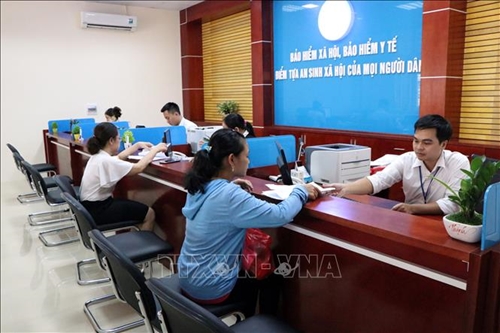The event, co-held by the Health Stategy and Policy Institute, the Medical Services Administration and the International Centre, shared international experience in terms of costs and benefits of providing assistive tools and devices to people with disabilities.
Healthcare and rehabilitation services for people with disabilities have been improved across the country, said Assoc. Prof., Dr. Luong Ngoc Khue, head of the Medical Services Administration.
    |
 |
|
People come to have their health insurance procedures handled at the Vietnam Social Security's branch of Tu Ky district, Hai Duong province |
Over 3 million out of the 6.2 million people with disabilities throughout the country have enjoyed free health insurance, he added.
Meanwhile, the remainders had to purchase health insurance and co-pay fees for medical services at their own cost, the official said, noting that the assistive tools and devices for mobility aids, which are vital to the people, are not covered by the health insurance.
Many people with disabilities are living in poor conditions and limited access to healthcare services. Families with a person with disabilities accounted for 55 percent of the lowest-income population. Calculations on the basis of the 2016 multi-dimensional poverty approach show that households with members with disabilities are over two times more likely to be living in poverty than those with none.
According to the national survey on people with disabilities in 2016, about 92 percent of the people with disabilities were sick, injured or used medical services within a year before the time of survey, nearly 20 percent higher than those without.
Some 15 percent of people with disabilities struggle to walk without assistive devices. With an assistive device, the figure will drop to only 1.94 percent. Therefore, if these tools are covered by the health insurance, it would make a big change in their life and help them more active in social activities.
Source: VNA